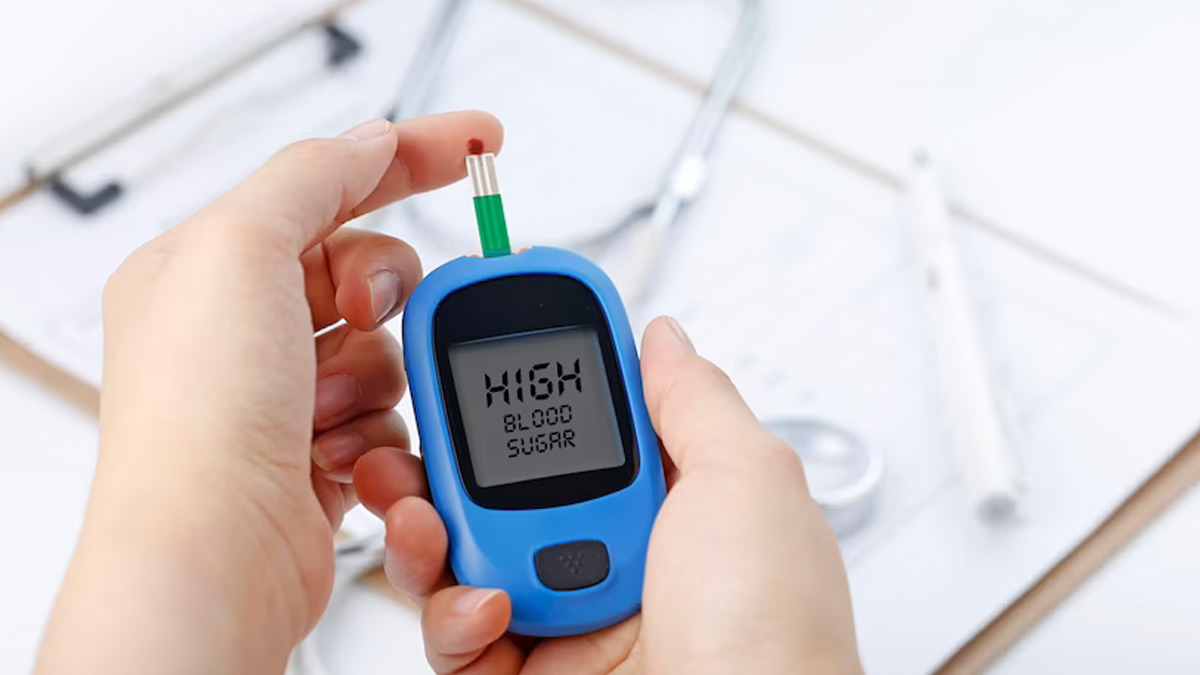
Have you ever experienced an unquenchable thirst, persistent fatigue, or unexplained fluctuations in your weight? These seemingly unrelated symptoms could be telling signs that your blood sugar is out of control. Dr Ekta Singhwal, M.Sc (Dietician), Ujala Cygnus Group of Hospital, listed the signs of uncontrolled blood sugar. By understanding the signs that indicate your blood sugar may be imbalanced, you can take proactive measures to regain control and improve your quality of life.
The number of people with diabetes is predicted to rise from 40.6 million in 2006 to 79.4 million by 2030, according to Medical Journal, Armed Forces India.
Signs Of Uncontrolled Blood Sugar

Frequent urination
Dr Singhwal said, “When blood sugar levels are high, the kidneys try to remove the excess sugar by filtering it out of the bloodstream and into the urine. This can lead to increased urine production, causing you to urinate more frequently than usual.”
Increased thirst
Frequent urination can result in dehydration. As your body loses more fluids through urine, you may feel an intense and persistent thirst to replenish the lost fluids.
Also Read: Diabetes Diet: Expert Lists Seeds That Can Regulate Blood Sugar Levels
Unexplained weight changes
Dr Singhwal said, “Fluctuations in blood sugar levels can impact your body's ability to regulate and utilise glucose effectively. If your blood sugar is consistently high, your body may start breaking down muscle tissue and stored fat for energy, resulting in weight loss. On the other hand, if your blood sugar is consistently low, you may experience weight gain as your body holds on to stored fat.”

Fatigue
The majority of the energy used by your body's cells comes from glucose. When blood sugar levels are not well controlled, your cells may not receive adequate glucose for energy production. As a result, you may experience persistent fatigue and a lack of energy.
Increased hunger
Insulin plays a crucial role in regulating blood sugar levels and signalling your body's cells to take in glucose for energy. When blood sugar is out of control, insulin production and function may be impaired. This can lead to increased hunger and cravings as your cells are not receiving enough glucose for energy.

Blurred vision
Dr Singhwal noted, “High blood sugar levels can cause the lenses in your eyes to swell, leading to changes in their shape and affecting your ability to focus properly. This can result in blurry vision or difficulty in seeing fine details.”
Also Read: Blood Sugar Levels Fluctuating? Expert Explains Reason For Rise And Drop
Slow-healing wounds
Chronically high blood sugar levels can impair the body's ability to heal wounds effectively. Elevated blood sugar can cause damage to the small blood vessels that deliver nutrients and oxygen to the injured area, delaying the healing process.
Frequent infections
Persistently high blood sugar weakens the immune system, impairing its ability to fight off infections. Common infections associated with uncontrolled blood sugar include Urinary Tract Infections (UTIs) and yeast infections, as bacteria and fungi thrive in environments with higher glucose levels.
Numbness or tingling
Over time, uncontrolled blood sugar levels can cause damage to the nerves, a condition known as diabetic neuropathy. This nerve damage can result in sensations of numbness, tingling, or burning, primarily affecting the hands and feet. It may also cause muscle weakness and loss of coordination.
Bottomline
Dr Singhwal concluded, “It's important to note that these signs can vary from person to person, and it's always best to consult with a healthcare professional for an accurate diagnosis. They can perform the necessary tests to evaluate your blood sugar levels and provide appropriate guidance and treatment options.”
Disclaimer
This article contains information provided by the expert. However, we recommend you consult your expert for a diagnosis based on your body type and medical history.







